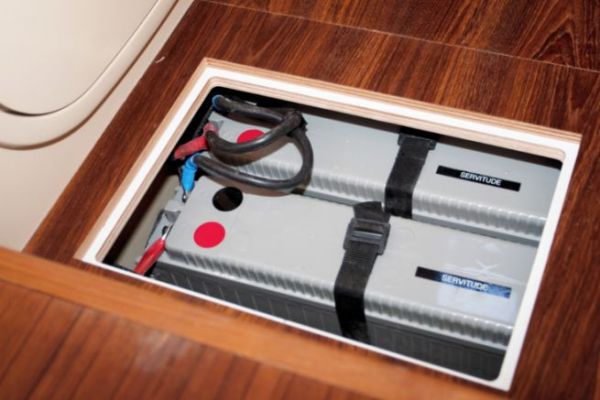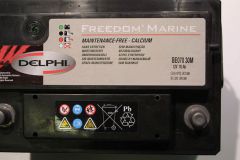With the widespread use of lithium systems on pleasure boats, a new regulatory ambiguity is raising questions for yachtsmen: does changing lead-acid batteries for lithium batteries call into question the boat's CE conformity? The 2024 guide to European Directive 2013/53/EU (RCD) provides precise information on this subject, and could influence the practices of an entire industry.
A technical change considered a major transformation
Directive 2013/53/EU stipulates that a substantial change to a CE-approved boat may result in the loss of this conformity. The replacement of lead batteries with lithium batteries, in accordance with the latest "Recommendations for Use" (RFU), is therefore considered a "substantial change" major change .
This applies irrespective of the lithium technology used: Li-ion, LiFePO4 or other. In theory, therefore, the boat will have to go through a CE certification process similar to that applied to a new vessel.
What does this mean for homeowners?
For yachtsmen who have already purchased a CE-certified boat with lead batteries, the installation of lithium batteries by themselves or by an installer who is not duly authorized can theoretically cancel this certification. In the event of a claim, this loss could complicate relations with the insurance company, or even be invoked to exclude certain guarantees.
However, this requirement is not not applied a posteriori by national maritime authorities. Loss of CE conformity does not make the vessel illegal to sail, but transfers technical responsibility to the owner.
Applicable standards and technical requirements
The XP ISO/TS 23625:2021 standard, specific to lithium batteries for boats, defines the requirements for installation, ventilation, BMS and user information. It applies to all systems exceeding 500 Wh .
Although still classified as XP (experimental), this standard serves as a reference for professionals, and could eventually be made mandatory for all installations in Europe. Failure to comply with the standard in the event of a claim could be considered a technical fault.
Role of the insurer and experts
As part of their risk management strategy, insurers may require prior declaration of lithium installations. Some even require an electrical survey, particularly for vessels already insured for "all risks". The survey verifies the safety of the installation (cable cross-section, circuit breakers, battery location, ventilation systems).
Refusal of compensation is rare, but possible if an installation is deemed non-compliant or defective.
Persistent legal uncertainty
The legal status of these recommendations remains unclear: the RCD 2024 guide does not have the force of law, but serves as a common basis for notified bodies in the EU. Its transposition into national law is still pending. For the time being, the doctrine adopted is that any modification to an important technical component renders the manufacturer non-responsible, and commits the owner.
Towards harmonized or stricter controls?
National maritime authorities do not always have the means to check on-board electrical installations. However, as the fleet of lithium-equipped boats grows, a stricter framework could emerge, particularly in relation to fire or environmental regulations. Documentation or installation certification requirements could be introduced for vessels offered for sale.
In conclusion, the debate surrounding CE certification and lithium batteries illustrates the growing need to update safety and liability rules on board. Today, sailing electrically requires heightened regulatory vigilance, both for boat owners and yachting professionals.

 /
/ 













